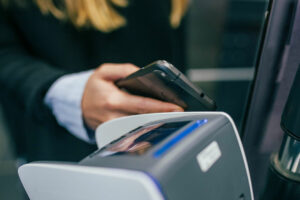




Philippines Trade Update: Imports weaken on tepid demand
 DOWNLOAD
DOWNLOAD

Policy Rate Updates: BSP outlook — cloudy with a chance of rate cut
 DOWNLOAD
DOWNLOAD

January Economic Update: Growth slows, prices rise
 DOWNLOAD
DOWNLOAD


Bill seeks waiver of fees for small transactions in electronic wallets

A bill seeking to waive additional fees in electronic wallet (e-wallet) transactions of up to PHP 1,000 has been filed at the House of Representatives.
“Waiving fees for small transactions will encourage wider adoption among low-income individuals, increasing financial inclusion and economic growth,” Cagayan de Oro City Rep. Lordan G. Suan said in the bill’s explanatory note.
Under the proposed law, “all e-wallet providers and electronic fund transfer service providers operating in the Philippines shall be required to waive all fees associated with small-value transactions.”
The fee waiver will be applied when sending money to another e-wallet user, cashing in or cashing out to an e-wallet account, and transferring funds to a bank account.
The central bank has the authority to adjust the transaction amount subject to waived fees based on the daily cost of living, current exchange rate, and inflation rate.
The proposed law also mandates increasing public awareness of the benefits and use of e-wallets, as well as the fee waiver for small transactions.
Mr. Suan said the bill “promotes financial inclusion by eliminating fees for small transactions in e-wallets.” It would also ensure transparency in fee disclosure and competition among e-wallet providers, he added.
E-money accounts are the most owned bank accounts with 36% or 27.5 million users, according to the Bangko Sentral ng Pilipinas’ (BSP) 2021 financial inclusion survey.
The number is more than four times the number of e-money users in 2019, which then stood at 8% or 5.7 million.
Cashless payments through payment terminals and mobile applications increased in 2021 to 13% and 9%, respectively, from almost zero in 2019. Meanwhile, cashless transactions for online purchases jumped to 18% in 2021 from 1% two years ago.
The central bank added that individuals who did not own a bank account cited cost issues and the lack of documents. — Beatriz Marie D. Cruz
This article originally appeared on bworldonline.com





 By BusinessWorld
By BusinessWorld